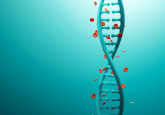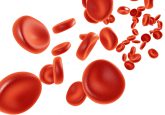Genetic biomarker may be the missing ingredient to foresee severity of food allergies

A research team from Ann & Robert H. Lurie Children’s Hospital of Chicago (IL, USA) has unveiled a genetic biomarker that could aid in the prediction of the severity of food allergy reactions. This is the first time a biomarker has been identified to show potential as such a predictor.
As of yet, there are no consistent clinical biomarkers that can effectively differentiate between individuals with food allergies who are susceptible to severe and potentially life-threatening responses and those who experience milder symptoms.
Dr Abigail Lang, lead author of the study, attending physician and researcher at Ann & Robert H. Lurie Children’s Hospital of Chicago and assistant professor of pediatrics at Northwestern University Feinberg School of Medicine (IL, USA), and her colleagues have now identified the presence of α-tryptase, an enzyme isoform that is encoded by the gene TPSAB1, is associated with a higher incidence of anaphylaxis or severe food reactions in comparison to individuals who do not present α-tryptase.
“Determining whether or not a patient with food allergies has α-tryptase can easily be done in clinical practice using a commercially available test to perform genetic sequencing from cheek swabs,” explains Dr Lang.
You may also be interested in:
- Biomarkers for oncology: an interview with Jialu Liu
- Challenges and strategies for the bioanalysis of protein therapeutics and biomarkers by LC–MS/MS
- Small extracellular vesicle biomarkers in breast cancer: a real-time snapshot for early diagnosis and prognosis?
“If the biomarker is detected, this may help us understand that the child is at a higher risk for a severe reaction or anaphylaxis from their food allergy and should use their epinephrine auto-injector if exposed to the allergen. Our findings also open the door to developing an entirely new treatment strategy for food allergies that would target or block α-tryptase. This is an exciting first step and more research is needed.”
Tryptase is primarily located within mast cells. Mast cells are specialized white blood cells that are integral to the immune system and become activated in response to an allergic reaction. It has been previously established that elevated TPSAB1 numbers result in increased α-tryptase levels and increased TPSAB1 numbers are linked to severe allergic reactions in adults with Hymenoptera venom allergies, such as anaphylaxis triggered by bee stings.
The research reports on 119 patients who received TPSAB1 genotyping, 82 of whom were part of an observational food allergy cohort at the National Institute of Allergy and Infectious Diseases (MD, USA). The remaining 37 patients were from a cohort of children who had an allergic reaction in response to the consumption of peanuts at Lurie Children’s Hospital. The research findings were recently published in the Journal of Allergy and Clinical Immunology.
“We need to validate our preliminary findings in a much larger study, but these initial results are promising,” explained Dr Lang. “We also still need a better understanding of why and how α-tryptase makes food allergy reactions more severe in order to pursue this avenue for potential treatment.”
Source: Lang A, Kubala S, Grieco MC, et al. Severe food allergy reactions are associated with α-tryptase. J. Allergy. Clin. Immunol. doi: 10.1016/j.jaci.2023.07.014. (2023) (Epub ahead of print)





